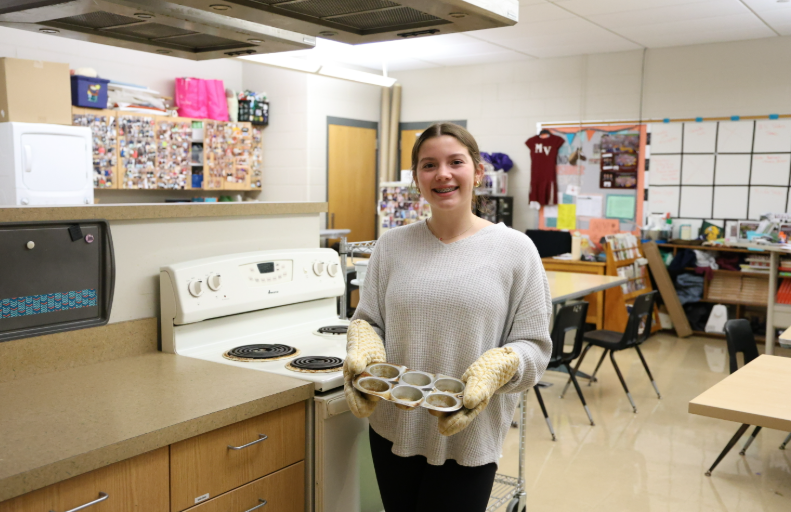He doesn’t come from a typical family. Like the penetrating roots of the crops on his family farm, Mount Vernon junior Payson Burge’s familial roots run deep. Burge, part of a line of eight generations of farmers, works hard to continue the legacy of his predecessors for many generations to come.
The Burge family’s farm dates back to 1838, previous to the establishment of the town of Mount Vernon. Burge’s family name is well known throughout the town of Mount Vernon for their long-lasting agricultural work, and as one of Burge’s classmates commented, he is known for “being a Burge”. This lengthy history of agriculture work has deeply ingrained farming into the Burge family identity.
For Burge, farming has always been second nature. Before Burge even knew how to spell his own name or dress himself, he was lending a hand at his family’s farm, located 3 miles from the school off of light road. He noted that as a young child he had been so involved in the farm that, “I took my first few steps in the …farmhouse.”
As Burge grew older, he became further invested in the farm. At 4 years old he began assisting his dad through taking tractor and combine rides together which allowed Burge to “learn what we were doing.” When Burge matured into adolescence his responsibilities expanded even further. At 16 years old Burge is now trusted to work on entire fields without the company of his father, as well as to operate equipment on his own.
On a typical workday at the family farm, Burge rises with the sun in the morning. Burge’s contribution to the farm varies from day to day. Burge often assists by fixing machinery and goes as far as to lend a hand to other local farmers, but above all his favorite task is to help his father. Whatever the job Burge is tasked with, he is so engrossed in his work that, “some days”, Burge said, “I would just skip lunch completely,” in order to draw his focus completely to his labor on the farm.
Doing chores on the farm — what would typically be a mundane responsibility for most — is an experience that gives Burge a purpose. To Burge, farming is an escape from his monotonous day-to-day life. Burge often gets bored of his typical routine of playing video games after school. “I need something physical to do,” he said. Sitting at home for hours on end just takes a toll on my body.”
Burge doesn’t only enjoy chipping in on his family farm because it serves as a cure for his boredom, but he also has found interest in the processes behind farming. Burge finds special interest in observing the changes involved with farming, such as appreciating the changing of colors in the fields and the development of crops as they grow. Along with his enjoyment of change on the farm, “I just find the concept of farming to be cool,” Burge said.
Above all, the most important aspect of farming for Burge is connections forged and the lessons learned through the demanding work of the farm. Burge said that through his contribution to his family farm, he has developed skills in problem solving and has acquired the skill of fixing machinery. The most important lesson that Burge learned, however, was the importance of communication. He shared that he learned how to communicate effectively through the work, as to run the farm the family needed to be aware of “What we need to do, how it needs to be done, what needs to be fixed first.”
Just like one of the crops on his family farm, Burge has grown and developed so much through his time working on his eighth generation family farm. Burge not only continues the legacy of his enduring farm, but he finds happiness and purpose while among the fields and pastures of his family’s acreage.








